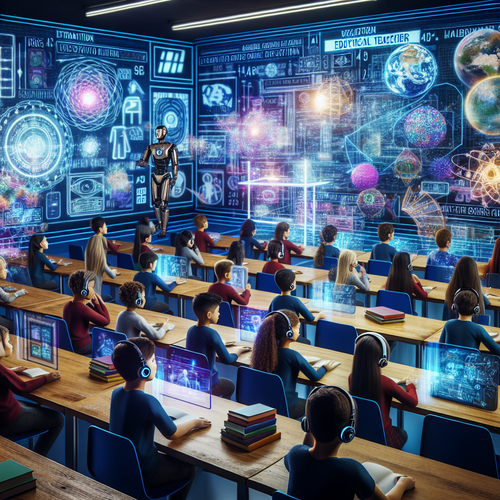
Navigating the Future of Artificial Intelligence in Education
Navigating the Future of Artificial Intelligence in Education
As we propel into an age dominated by technology, artificial intelligence (AI) is shaping many sectors, with education being no exception. The integration of AI into educational settings is not merely a trend; it is rapidly becoming a cornerstone for enhancing learning experiences and outcomes.
Understanding AI’s Role in Education
AI can analyze vast amounts of data far more efficiently than traditional methods. This ability allows educational institutions to tailor learning experiences based on individual student needs.
- Adaptive Learning Technologies: AI systems can adapt content in real-time to suit students’ progress and learning styles.
- Automated Feedback: Immediate feedback on assignments helps students identify areas for improvement.
- Predictive Analytics: AI can predict student performance and potential dropouts, enabling early intervention.
The Benefits of AI in Education
Utilizing AI in educational frameworks brings numerous benefits including:
- Personalization: Each student receives a custom-tailored learning pathway.
- Efficiency: Teachers can focus on teaching rather than administrative tasks.
- Accessibility: AI tools make learning accessible for students with diverse needs.
Case Studies Highlighting AI Integration
Multiple educational institutions worldwide are leveraging AI effectively. For example, a recent program implemented in California schools has demonstrated measurable improvements in student engagement and achievement.
Moreover, applications such as Duolingo have utilized AI to adapt lessons based on users’ strengths and weaknesses, providing a compelling study of AI’s capabilities in enhancing language learning.
Challenges Ahead
Despite the positives, integrating AI into education also carries challenges:
- Privacy Concerns: Safeguarding student data and maintaining privacy is crucial.
- Equity Issues: Ensuring equitable access to technology and AI tools for all students remains a significant challenge.
- Training Educators: Teachers need training to effectively use AI tools and integrate them into their curriculum.
Looking Forward: The Future of AI in Education
As technology advances, the potential for AI in education is vast. We can expect continuous improvements in AI tools that provide further personalized and engaging learning experiences.
The insights derived from data analytics will further shape curriculum design and educational frameworks. To explore more about how technology is reshaping education, check out our recent post on Exploring the Benefits of Quantum Encryption which touches on the crucial role of technology in modern systems.
Conclusion
As we navigate the future, embracing AI in education makes sense not just for enhancing learning outcomes but also for preparing students more effectively for a technology-driven world. The journey might be complex, but the destination promises to revolutionize how we educate future generations.












